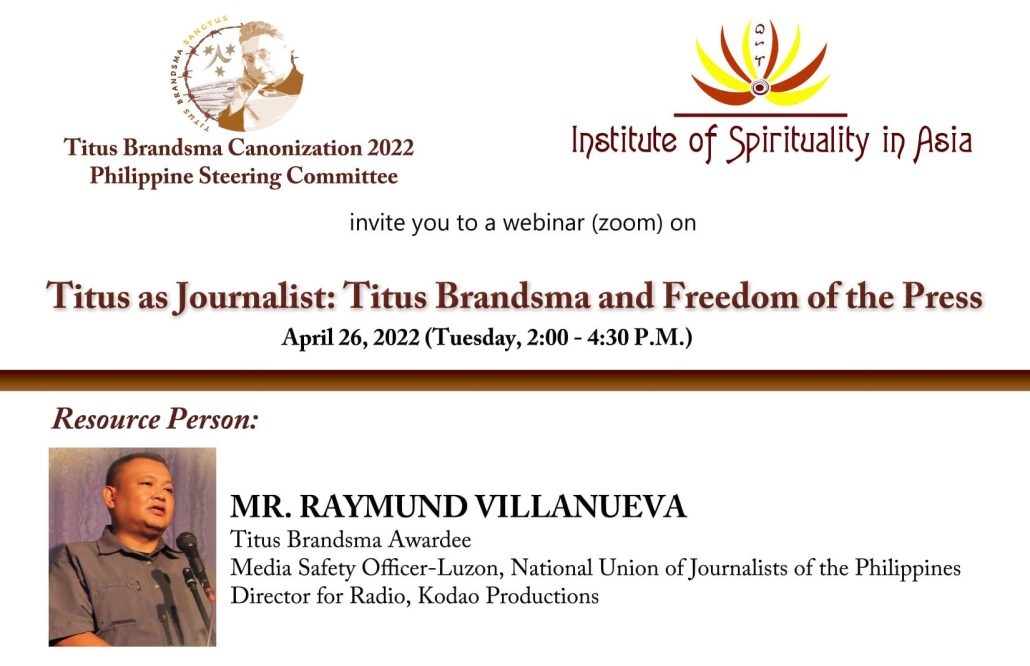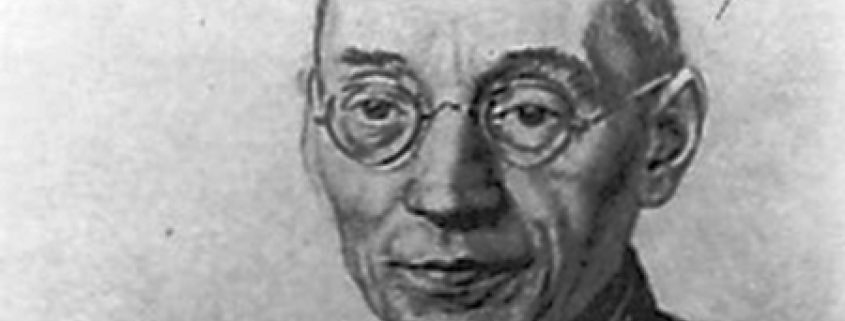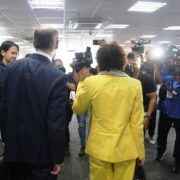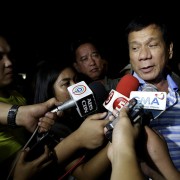Titus as Journalist: Titus Brandsma and the Freedom of the Press
By Raymund B Villanueva
(Lecture delivered last April 26 to an Institute of Spirituality in Asia webinar as part of Titus Brandsma Canonization 2022 Committee celebrations of the Order of Carmelites in the Philippines. Pope Francis is set to canonize Blessed Titus Brandsma, OCarm with nine others at the Vatican today, March 15.)
Thank you once more for inviting me to yet another Institute of Spirituality in Asia webinar. This time, I won’t be talking about something I am very familiar with. In fact, it is a bit presumptuous of me to accept the invitation to talk about the Blessed Titus Brandsma as a journalist because I am quite sure he is more familiar to you than he is to me. I accepted because I believe I can make comparisons, parallelisms and juxtapositions to what he endured to defend freedom of the press and of expression and what we as practicing journalists of today have to contend with as well. Also, it is quite an honor to be made part of the Philippine celebrations in anticipation of his canonization next month, one that should not be declined lightly.
Aside from being a philosophy teacher, a Carmelite religious, mystic, reformer and many other things, Titus took on the role of a journalist and was chief editor of De Stad Oss, which he gave a new identity to. He wrote an impressive number of articles for the Carmelrozen Magazine that focused on spirituality. Sources said journalism occupied a special place in Titus’ heart, considering it an excellent opportunity to give the spiritual life a place in what was then an increasingly secularizing Dutch society. He also wrote articles on Dutch piety in De Gerderlander and served as an adviser to the Roman Catholic Journalists’ Association.
Here is where I will attempt to draw parallelisms and juxtapositions.
I consider those who enter the world of journalism lucky because it was not only their dream but also because they have spent their young lives preparing to become one. They are blessed with not only clear dreams and definite goals and so have studied and trained to become one from school. Many were fortunate to be hired and to work as one, and more blessed are they if they have spent the best years of their lives being, serving and living as journalists.
They must have seen and still see journalism as a life worth living, a force of good not just for themselves but for others. To devote oneself to such a lifelong undertaking, they must consider the calling as beyond just trade, skill, a way to earn a living, or, for personal glory by way of the byline. Sure, these are reasons by themselves, but journalism, good or bad, is beyond all these.
Blessed Titus’ journey into journalism started, I believe, like most lifelong journalists did and do, at least in the Philippines. He was not a child who dreamt of being a journalist and formally studied to become one. He studied and trained to become a religious and, when he was already one, became a journalist as well, among many other concerns and personal projects.
I have heard it said repeatedly that becoming a good journalist is not necessarily premised on having studied journalism formally. In fact, one should study and master other disciplines in order to become a knowledgeable journalist, one who is not just a master in stringing words together but someone who may also know a thing or two about what s/he reports about. For example, one who has studied economics has a better chance of becoming a good business reporter or a political science graduate is more likely to become a good correspondent reporting on government.
But what about news writing and reportorial skills? Shouldn’t prospective journalists study that as their main training? Well, yes. But what I am trying to say is, becoming anything is not solely dependent on one’s academic training. One can become good at anything if s/he puts his/her mind and body into it which, in Blessed Titus’ case, was successful. Journalists do not just come from journalism schools. They come from everywhere, as Fr. Ritche Salgado, OCarm, who was already a licensed physical therapist before becoming a journalist and later on a religious, showed us. I am another example of sorts. I studied Philosophy and Letters at a school that had no journalism program, yet here I am fancying and styling myself as one.
But Blessed Titus was, of course, a cut above our humble examples. Because of his spirituality, he became a journalist to amplify his thoughts, beliefs and faith. His journalism became an energetic conduit to sharing, informing, educating, evangelizing and witnessing. He wrote, edited and published to give more fullness to his calling and mission. He was a force in arguing for the spiritual life in an increasingly secularizing society.
Blessed Titus’ spirituality and his journalism were not nebulous things. They were also firmly anchored in the temporal, such as denouncing and fighting evil in this world like Nazism and the assassination of freedom of the press and expression. It came to fore when the Third Reich invaded his homeland The Netherlands in May 1940. He did not only write against this evil, he also took on the very dangerous mission in January 1942 to deliver by hand a letter from the Conference of Dutch Bishops to the editors of Catholic newspapers ordering them not to print official Nazi documents, as was dictated by the German occupiers. He also urged Catholic newspapers and magazines to not accept and print advertisements from groups that supported Nazism. He had accomplished delivering this message to 14 editors before being arrested on 19 January of that year. He is now known, most of all by the Philippine Carmel, to be the Martyr of Press Freedom for refusing to let falsehood and evil see print, even at the cost of his life.
And here is another parallelism: fascism is still with us today, no less evil as when Nazi boots trampled Blessed Titus’ people. Spilled blood paint streets, lives ebb as plaintive cries rend the air. Poverty is the people’s reality while our rulers flaunt wealth sucked from the sinews and marrows of emaciated bodies of workers. Have you seen how our people patiently wait for the chance to catch a ride morning and night, dreaming of laying their heads for a few hours of rest before another day’s suffering? Titus would have looked at these scenes and wrote about them from and with his light. It is possible that had he been a journalist during our times, he would have railed against the social injustices and be persecuted.
Many journalists today die because because of such stories. Marlene Esperat exposed the fertilizer scam and died for it when armed men stormed into her house one night and shot her in front of her children. Broadcaster Gerry Ortega railed against the rape and plunder of the environment and was shot to death in full view of many people in Puerto Princesa, Palawan. Under the Rodrigo Duterte regime, at least 22 journalists have been killed. We have documented hundreds and hundreds of attacks on press freedom including cyber-attacks, vilification, arrests, trumped-up charges, red-tagging and many others.
Because as in the time of Hitler, so it is today with Duterte. In the face of social injustices, many journalists try to be as Titus, refusing to be dictated upon, muzzled, and ordered to be the purveyor of falsehood and evil. They may not have heard about Titus Brandsma, but one thing with goodness and light is that they manifest in other humans and through acts that may be described as spiritual for one.
In a few weeks’ time, the Church will elevate Blessed Titus to its pantheon of saints. He shall be another intercession for our collective dream for fullness of humanity. And this blessing could not come at a better time for journalists and the Filipino people. When the religious, the journalists, human rights defenders, public interest lawyers, land reform advocates, militant labor, are being killed, St. Titus would implore us to be with them as witnesses. When falsehoods are misrepresented as facts, when the media are subverted and corrupted, when trolls try to be the definers of truth, St. Titus, by his witness, would implore us to counter with real truth. #
(The author is the 2015 Titus Brandsma Philippines awardee for Emerging Leadership in Journalism.)








